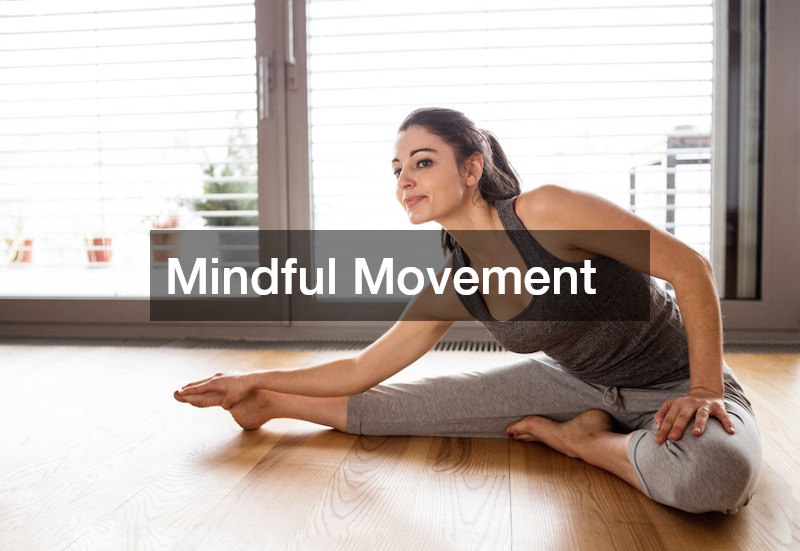Disclaimer: This website provides health information for educational purposes only and is not a substitute for professional medical advice, diagnosis, or treatment. Always seek the guidance of a qualified healthcare provider with any questions you may have.
Modern women are juggling more than ever—careers, families, personal growth, and countless daily responsibilities. Amid this constant movement, self-care has transformed from a luxury into a necessity. But true self-care goes beyond bubble baths and spa days. It’s about taking an intentional, well-rounded approach to physical, emotional, and mental well-being. That’s where holistic self-care enters the picture—a deeper, more mindful practice that supports healing and balance in all areas of life.
Holistic self-care recognizes that no single part of a person exists in isolation. The body, mind, and spirit are deeply interconnected, and each one affects the others. For the modern woman, who often faces pressure to perform, nurture, and succeed simultaneously, embracing this philosophy can be incredibly grounding.
This blog will explore ten of the most effective and empowering treatments for women who are ready to commit to deeper well-being. Whether you’re just beginning your self-care journey or looking to refine it with meaningful, results-driven practices, this guide is here to support you. Get ready to dive into ten approaches that not only help you look and feel better but also support healing, growth, and balance from the inside out.
1. Whole-Body Healing
Taking care of your whole self is about understanding how all aspects of your health are connected. Whole-body healing focuses on the integration of physical, emotional, and mental wellness to address your needs in a comprehensive way. It’s about taking proactive steps to build resilience from within.
One way to begin this journey is by seeking guidance from a trusted holistic doctor. Their care plans typically combine traditional medical approaches with alternative methods like nutrition guidance, lifestyle counseling, and herbal support. By addressing imbalances across multiple systems, these doctors help patients create lasting, meaningful changes in their health.
Incorporating a holistic doctor into your care team ensures your wellness strategy is well-rounded. With ongoing support and personalized attention, you’re empowered to make informed choices that align with your body’s unique rhythms. When practiced consistently, holistic self-care can help improve energy, immunity, sleep, and even emotional stability.
2. Emotional Recovery

Emotional health is just as vital as physical health, yet it’s often pushed aside in daily life. When difficult experiences or long-held stressors go unaddressed, they can manifest in chronic pain, fatigue, and anxiety. Emotional recovery is about creating space for healing and allowing yourself the freedom to work through challenges in a healthy, supported environment. It’s a foundational piece of any holistic self-care routine.
For those dealing with the aftermath of difficult life events, trauma therapy offers a focused path to healing. Unlike general counseling, this specialized form of therapy aims to restore emotional safety and rebuild a sense of control. Through methods like EMDR, somatic experiencing, or talk-based support, individuals can gradually release trauma held in the mind and body. It’s a gentle but powerful process that meets you exactly where you are.
Adding trauma therapy to your wellness practice allows for deep emotional cleansing and growth. It reinforces that healing isn’t linear—and that seeking help is a strength, not a weakness. Emotional recovery, when combined with holistic self-care techniques, can help you feel more centered, present, and open to joy in your everyday life.
3. Skin Renewal Tech
Feeling good in your skin isn’t about vanity—it’s a form of self-respect and confidence. Skin health can be affected by stress, hormonal changes, diet, and environmental toxins. Investing in treatments that refresh and revitalize the skin is a smart part of caring for your whole self. When integrated properly, beauty practices can become a powerful tool in your holistic self-care toolkit.
Modern advancements like laser treatment offer effective, non-invasive options for skin rejuvenation. These technologies can help reduce discoloration, smooth fine lines, and improve overall texture. Unlike harsh chemical solutions, many laser options stimulate the skin’s natural healing process, promoting collagen production and cellular renewal. It’s about enhancing your natural beauty while supporting your skin’s long-term health.
Incorporating skin renewal as part of your routine doesn’t have to feel superficial. When combined with mindfulness, hydration, proper nutrition, and rest, it becomes part of a full-spectrum approach to wellness. Holistic self-care encourages you to feel good both inside and out, because confidence in your appearance often reflects and reinforces deeper inner balance.
4. Mindful Movement

Movement is essential for physical vitality, but not all exercise is created equal. Mindful movement practices prioritize form, breath, and awareness—helping you reconnect with your body while building strength and flexibility. In a world where burnout is common, carving out time to move with intention is one of the best gifts you can give yourself. It’s a grounding act of holistic self-care that benefits both the body and the mind.
Pilates classes are a great way to introduce structured, thoughtful movement into your routine. These low-impact sessions focus on core strength, posture, and muscle balance, making them suitable for a wide range of fitness levels. Whether you’re recovering from an injury or simply want to feel more aligned, Pilates offers a smart and sustainable path.
When practiced regularly, Pilates improves mobility, posture, and even mental clarity. It’s particularly beneficial for women managing hormonal shifts, chronic fatigue, or high stress. Combined with other elements of holistic self-care, like proper nutrition, emotional support, and sleep, p—this practice can play a powerful role in helping you feel more present and empowered in daily life.
5. Natural Alignment
Posture, alignment, and spinal health might not be the first things that come to mind when you think of self-care, but they should be. When the spine is out of balance, it can disrupt nerve communication, limit mobility, and contribute to a host of other physical issues. Maintaining spinal alignment helps the body function more efficiently and reduces the wear and tear that builds over time. It’s a surprisingly effective part of a holistic self-care plan.
Visiting a chiropractor office offers targeted adjustments that correct misalignments and improve body mechanics. These treatments help relieve tension, reduce headaches, and support overall nervous system function. Many women find that after regular visits, their pain levels drop and their energy levels improve. Chiropractic care aims to restore balance from within.
Proper alignment can also support better sleep, improve digestion, and make other wellness efforts more effective. When combined with mindful movement, emotional care, and nutritional support, chiropractic care becomes part of a truly comprehensive strategy. Holistic self-care works best when all systems of the body are given the support they need to function at their best.
6. Stress Relief Touch

Touch is a powerful tool for healing, and stress relief through bodywork has been practiced for centuries. In today’s fast-paced environment, physical tension often builds up unnoticed, leading to headaches, fatigue, or even emotional burnout. Incorporating intentional, healing touch into your routine helps release stored stress and improves circulation, energy, and overall well-being. As part of holistic self-care, it allows the body to reset and the mind to slow down.
Working with skilled massage therapists can provide targeted relief where you need it most. From deep tissue to lymphatic drainage, various techniques can improve muscle recovery, release toxins, and boost mood. Many women also find that regular sessions support hormone balance and reduce anxiety. A single massage may offer temporary relief, but regular appointments can foster long-term physical and emotional resilience.
As you build a routine that supports your whole self, don’t underestimate the importance of rest through touch. When combined with mindfulness, hydration, and emotional support, massage becomes more than a luxury—it becomes a necessity. Holistic self-care means listening to your body’s signals, and massage therapy offers a gentle yet powerful way to respond with kindness.
7. Confidence Boosters
Confidence is deeply tied to how we feel in our bodies, especially after major life events like childbirth, illness, or weight fluctuations. Feeling strong, radiant, and comfortable in your skin can positively influence all other areas of your life. While it’s important not to equate beauty with worth, thoughtful, body-positive enhancements can be part of a holistic self-care journey focused on confidence and renewal.
Some women choose to explore mommy makeovers as a way to restore their sense of self after pregnancy or major physical transitions. These procedures typically combine cosmetic techniques to address the abdomen, breasts, or other areas affected by childbirth. When pursued thoughtfully and safely, these enhancements can serve as a tool for body empowerment, not conformity.
Holistic self-care doesn’t mean rejecting appearance-based treatments. It means choosing what feels right for your personal growth and happiness. When combined with emotional support, balanced nutrition, and mindful movement, aesthetic treatments can play a role in healing your relationship with your body—and giving you the energy and confidence to fully engage in life.
8. Mental Wellness Help

Mental clarity and emotional balance are at the core of feeling whole. It’s easy to become overwhelmed by the responsibilities and expectations placed on modern women, but help is always within reach. Seeking professional mental health support is a powerful way to reset, reflect, and strengthen your ability to cope. It’s also a vital component of holistic self-care that’s often overlooked.
Connecting with a counseling service can provide structure and support during challenging times or transitions. These services often offer a range of therapies—from cognitive-behavioral to mindfulness-based techniques—that help identify negative patterns and build resilience. Counseling isn’t just for crisis moments; it’s a proactive investment in emotional health and personal development.
By integrating therapy into your life, you can gain a deeper understanding of your emotions and how they shape your daily experiences. Combined with physical self-care, proper rest, and intentional nutrition, talk therapy allows for a complete and transformative wellness journey. Holistic self-care means caring for your inner world just as much as your outer one, and therapy offers an accessible and empowering way to do just that.
9. Everyday Glam
Sometimes, the smallest rituals bring the greatest joy. Refreshing your appearance with a haircut or color treatment can be an uplifting experience that helps you feel renewed and confident. These little moments of care and creativity support not only your appearance but your spirit. As a form of holistic self-care, even routine beauty appointments can serve as essential touchpoints for self-expression and mental reset.
A visit to your trusted local hair salon isn’t just about style. It’s about being seen, heard, and pampered. Stylists often become part of your support network, offering encouragement while helping you achieve a look that reflects who you are or want to be. The transformation, however big or small, is a celebration of self-worth and individuality.
Incorporating beauty rituals into your self-care plan doesn’t have to feel shallow. On the contrary, these practices can help you reconnect with yourself, boost confidence, and feel more aligned inside and out. Holistic self-care invites you to take joy in your rituals, especially those that make you feel vibrant and empowered.
10. Youthful Restoration
Aging gracefully is not about turning back the clock, but about supporting your body in feeling its best at every stage. As women explore options for maintaining energy, clarity, and vitality, regenerative techniques are becoming a more popular part of the wellness conversation. When chosen carefully, these approaches can offer natural, lasting benefits that align with the values of holistic self-care.
One example is PRP treatment, which uses your body’s platelet-rich plasma to stimulate healing and regeneration. Often used in skincare and hair restoration, PRP promotes collagen growth and cellular repair without synthetic additives. It’s a more natural approach to renewal, perfect for women looking to enhance their appearance and vitality without aggressive intervention.
This kind of treatment highlights what holistic self-care is really about—working with your body, not against it. Whether you’re addressing signs of aging, recovering from stress, or simply seeking to maintain your glow, regenerative therapies like PRP can help support lasting wellness. They’re not about vanity—they’re about vitality.
In the whirlwind of modern life, it’s easy to forget that wellness isn’t just a destination—it’s a daily practice. Holistic self-care empowers women to reclaim their well-being by embracing treatments and habits that nourish both body and mind. This guide explored ten diverse approaches, from physical practices like movement and touch to emotional support and aesthetic rejuvenation, all designed to help women feel balanced, strong, and deeply connected to themselves.
Women today are juggling more than ever—careers, families, relationships, and personal goals. Holistically prioritizing self-care isn’t selfish; it’s a form of strength. Whether you find confidence through aesthetic enhancements, clarity through counseling, or energy through a great Pilates session, the key is that each choice is grounded in love, not pressure. That’s the heart of holistic self-care: choosing what aligns with your values, your health, and your vision for your life.
As you move forward, remember that small steps can lead to lasting change. Start with one new habit or treatment that resonates with you and build from there. Holistic self-care is not about perfection—it’s about presence, patience, and purpose. With the right support and tools, you can thrive, not just survive.